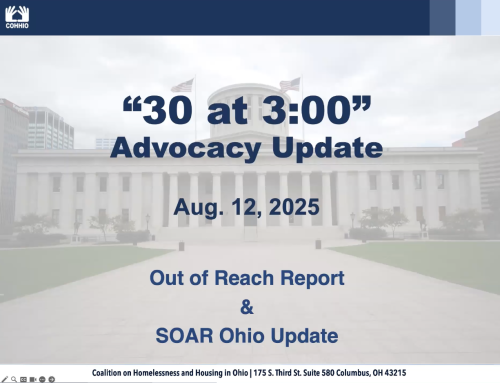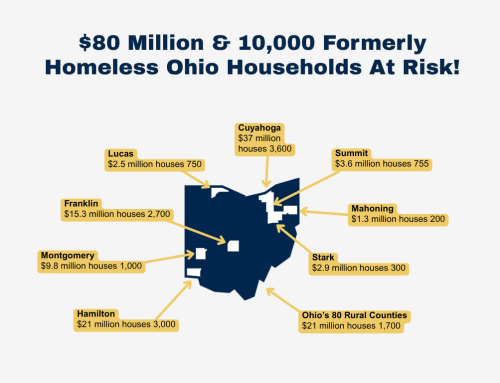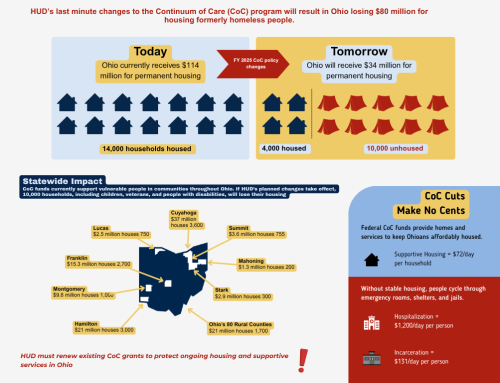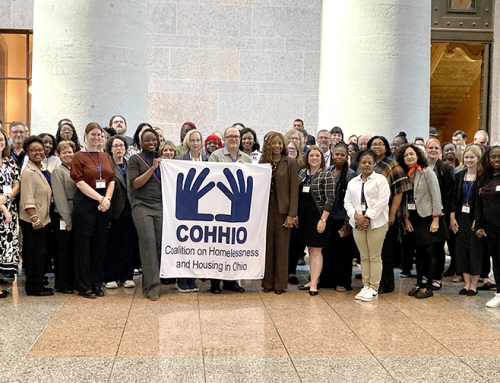DEC. 21, 2022
Lame Duck Statehouse Exacerbates Ohio’s Affordable Housing Crisis
Advocates Urge DeWine to Use Veto Pen
State lawmakers not only missed the opportunity to address Ohio’s affordable housing shortage during the recent lame duck session; they passed legislation that will actually make it worse.
The Coalition on Homelessness and Housing in Ohio (COHHIO) called on Gov. Mike DeWine Wednesday to veto several last-minute amendments that would restrict the use of federal eviction prevention funds and reduce Ohio’s affordable housing stock.
While COHHIO supports the $161 million appropriation in Emergency Rental Assistance that was added to House Bill 45, the group asked Gov. DeWine to veto language restricting it to tenants with rent and utility arrears incurred before Dec. 31, 2021. That deadline makes these funds practically unusable since tenants with debts dating back more than a year have likely moved out or already been evicted.
COHHIO Executive Director Amy Riegel said the amendment would also prevent the state from meeting federal expenditure deadlines, which will likely result in the U.S. Treasury Department redistributing Ohio’s Emergency Rental Assistance to other states.
“Federal Emergency Rental Assistance has already helped over 220,000 vulnerable Ohioans pay off arrears to their landlords and utilities to remain safely in their homes. If this amendment takes effect, Ohio families will get unnecessarily evicted while these dollars go to people living in big states, like New York and California,” Riegel said.
A separate amendment to HB 45 changes the way counties assess the value of affordable housing developments, which could effectively increase property taxes on senior and workforce housing developments despite restrictions on how much rent they can charge tenants. Another provision prohibits developers from receiving Historic Preservation Tax Credits and Low Income Housing Tax Credits for the same project, and it actually requires the state to rescind tax credits from projects that are already under development.
“These amendments threaten the financial viability of existing developments that house tens of thousands of seniors, children, and people with disabilities. And they will discourage the creation and rehabilitation of future affordable housing projects in Ohio at a time when housing costs are exploding,” Riegel said.
After two years of record rent inflation stemming from the pandemic, the lame duck legislature added $6 billion in spending to HB 45 without using any federal covid relief funds to address Ohio’s affordable housing shortage. COHHIO, joined by over 260 other organizations, advocated for investing $308 million of the state’s American Rescue Plan Act funds to create thousands of units of affordable and supportive housing for seniors, low-wage families with children, and Ohioans struggling with homelessness, mental illness, and disabilities.
Meanwhile, annual Point in Time homelessness data that the U.S. Department of Housing and Urban Development released this week indicates the number of children experiencing homelessness increased 5 percent since the beginning of the pandemic, and unsheltered homelessness rose 5.6 percent.
Riegel said Emergency Rental Assistance, the Child Tax Credit, and other pandemic-related assistance held Ohio’s overall homeless population steady since 2020, but homelessness has likely increased significantly since the last count was done nearly a year ago.
“Rapid rent inflation has made it harder for agencies to work with landlords to get families out of homelessness and into their own apartments. And now we’re seeing people who were never homeless before seeking help because they can’t afford such steep rent increases,” she said.
Riegel applauded Gov. DeWine for prioritizing children and his focus on tackling Ohio’s mental health crisis. She noted that having a decent, stable, affordable home is essential for children’s wellbeing and for individuals to overcome behavioral health issues.
“I hope Gov. DeWine will stand firm in his commitment to the most vulnerable families in Ohio and veto all three bad housing amendments, then return in the New Year with a robust plan to boost affordable housing and reduce homelessness,” she said. “Now, more than ever, we need the administration’s guiding hand and voice of reason.”
More information:
- Veto request letter on restrictions to Emergency Rental Assistance
- Press release on affordable housing property tax increase amendment
- Proposal to invest $308 million ARPA funds in affordable housing
-30-
